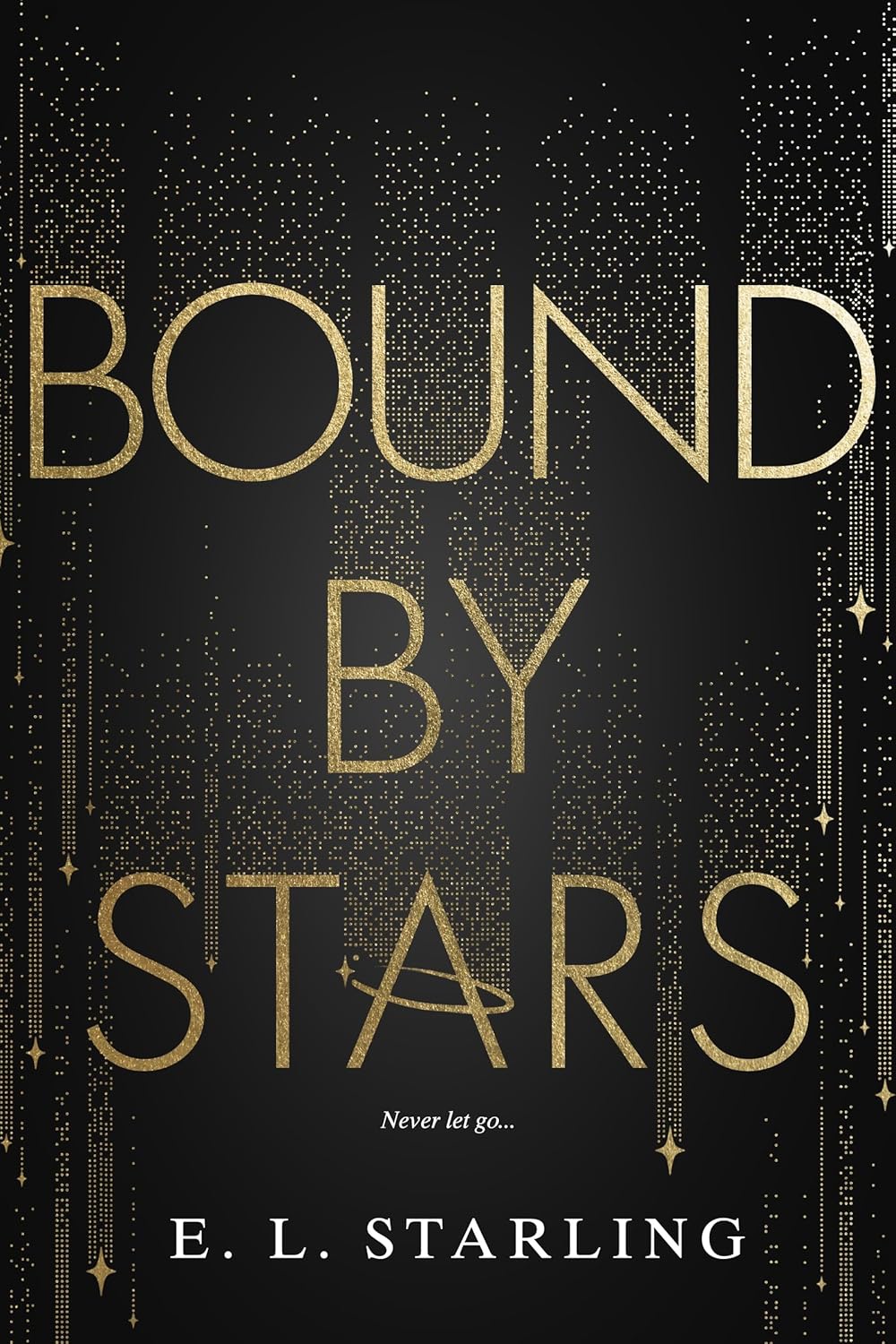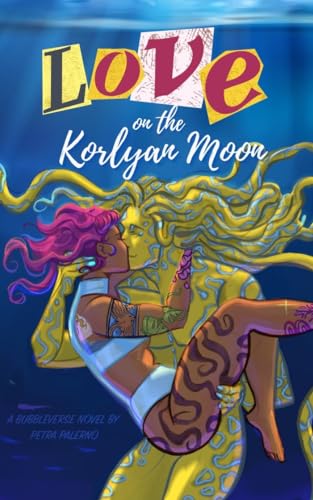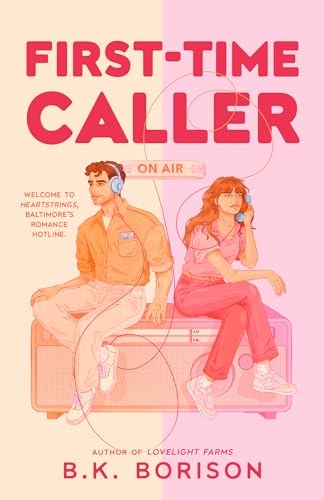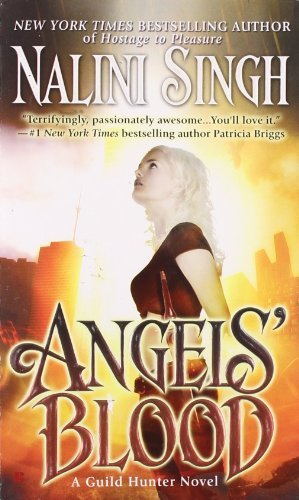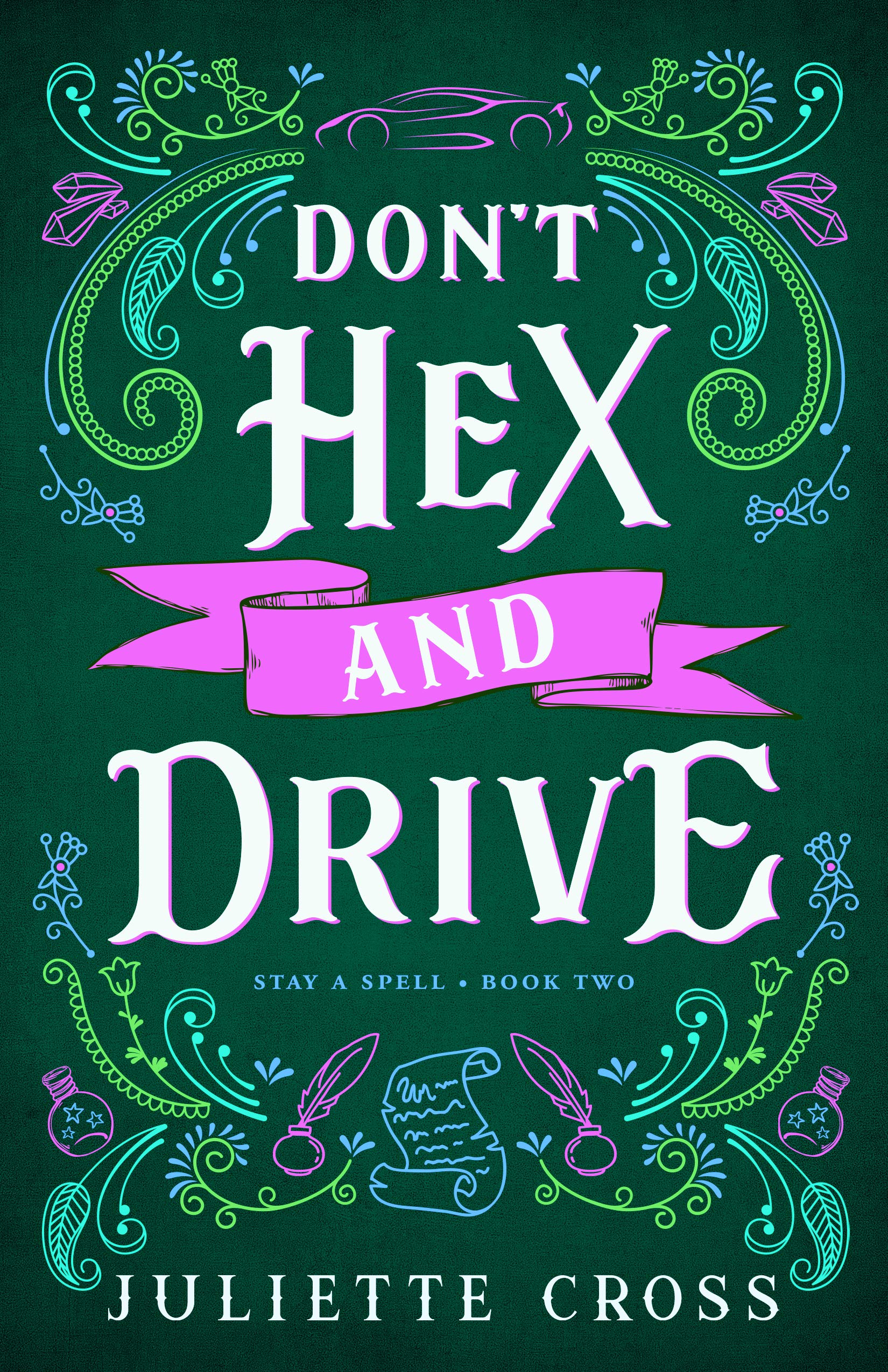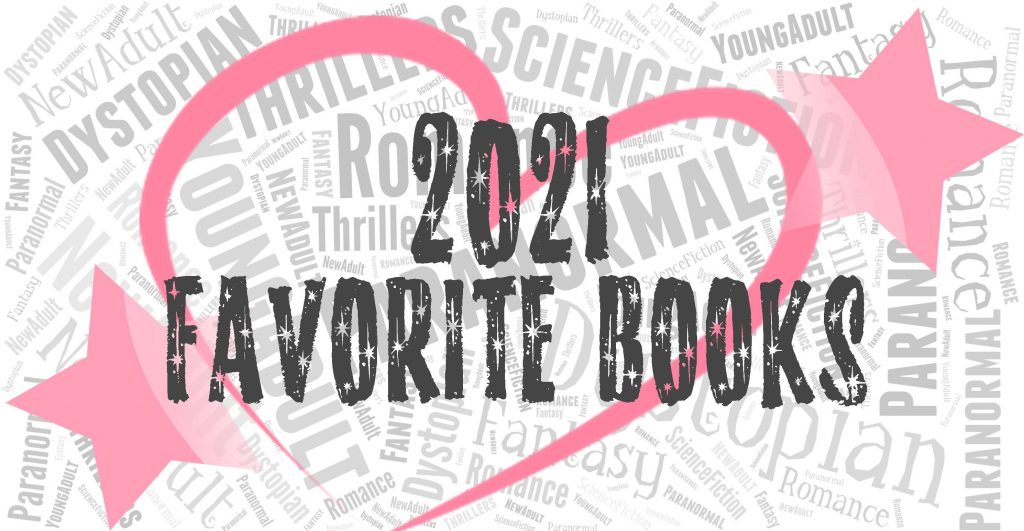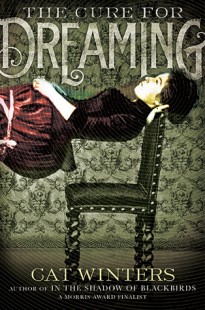 The Cure for Dreaming by Cat Winters
The Cure for Dreaming by Cat Winters Purchase on: Amazon, iBooks
Add to: Goodreads
Synopsis:
Olivia Mead is a headstrong, independent girl—a suffragist—in an age that prefers its girls to be docile. It’s 1900 in Oregon, and Olivia’s father, concerned that she’s headed for trouble, convinces a stage mesmerist to try to hypnotize the rebellion out of her. But the hypnotist, an intriguing young man named Henri Reverie, gives her a terrible gift instead: she’s able to see people’s true natures, manifesting as visions of darkness and goodness, while also unable to speak her true thoughts out loud. These supernatural challenges only make Olivia more determined to speak her mind, and so she’s drawn into a dangerous relationship with the hypnotist and his mysterious motives, all while secretly fighting for the rights of women. Winters breathes new life into history once again with an atmospheric, vividly real story, including archival photos and art from the period throughout.

“As I’ve learned through my own ordeals, once you start viewing the world the way it truly is, it is impossible to ignore both its beauty and its ugliness. Look around you.
You can’t stop seeing it, can you?”
These sentences here? They’re worth 5 big shiny stars. Sadly, the book was not. If Cat Winters is without doubt a formidable storyteller and if I think the ideas she’s trying to convey are absolutely fabulous (with all my heart, thank you), I felt let down by several aspects of this book.

The Cure for Dreaming offers us a demeaning, thoughts-inducing trip back in time when women were fighting for their rights – to vote, and more generally to be treated as equals as men.

In 1900s Portland, while suffragists are trying to make themselves heard, Olivia nurtures the dreams to attend College and to get the chance to participate in her country’s future. Nothing wild, you think? It was without counting on her father’s dreams which are in glaring contradiction with hers : indeed his sole aim is to make her marry “well’ (think wealthy) and to perpetrate the way of life he always followed.
What I found fascinating is to see that the sexist situations Olivia is facing are the SAME as the ones that annoys me so much in romance novels nowadays. Cat Winters, on the contrary, presents these situations as they really are : controlling, demeaning, and so very sexist. Thank you. Let’s play a little matching game, okay?
Rule #1 : You shall not express your anger.

… or speak your mind, for that matter.

Rule #2 : You shall love having no choices.

Rule #3 : You shall find forced kiss exciting

I could go round and round in circles, my point wouldn’t be clearer : some of the sexist and infuriating stereotypes and behaviors Olivia denounces in 1900s women’s life are still pictured as appealing and sexy in many romance novels. I’m kind of depressed right now.
Despite this oppressive atmosphere, Olivia stays strong-minded and I really liked her. Little by little, she’s trying to make sense of her life and her relationships and I was happy to see her grow throughout the novel and finally start to publicly express her needs and thoughts. This is so very important. See, it took me time to realize that sometimes you HAD to speak up for yourself. People think you’re a bitch? So what. No, really. So what.
As for the paranormal aspect, I’ll let the mystery remain complete but I have to say that I found its introduction fabulous and unexpected. I LOVED IT. So imaginative and like nothing I read before.

Unfortunately, despite the atmospheric writing, the original and brilliant paranormal aspect and the oh-so-important issues tackled, my connection often wavered, letting me unable to trigger strong emotions : first because the dialogues sounded sometimes fake to me (issue I already had with The Steep and Thorny Way) but mostly because of the flat secondary characters, starting with Henry, the male lead. I mean, okay, he is sweet. Really. Yet he never triggered my aww button and even though I was rooting for them, he missed this little something more, this extra-layer that would have make my heart beat faster. As for her best friend, Tania – I think? GAH. I already forgot. See?? – I was pretty disappointed by the fact that she didn’t play a greater role in the story. Yes she makes appearances but not near enough for me to care about her.

Oh, boy. What did happen to the men? Look, I do realize that women rights weren’t popular among men at the time, and I do not have a problem with a rather unlikeable portrayal of men in that aspect. Yet I need nuances. As I said, aside from Olivia, the main character, the other characters are flat and pretty stereotypical (the father! GAH!), especially the villains. We’re not offered a real development of the secondary characters, and the way they talk often made me roll my eyes, especially when it comes to the dialogues with her father. I mean, are you kidding me? Who is this crazy dentist who’s talking with his daughter as if he killed puppies for a living?
Meet Olivia’s father.

Meet the men, except Henry and one or two exceptions.

Look, I’m not denying that Cat Winters addressed the fact that some men shared suffragists views, because she did, but it remains that the male characters she offers us don’t demonstrate critical thinking. They’re plain villains. Boo-hiss.
That ending, though? It was amazing. Tears of joy inducing. I adored it.
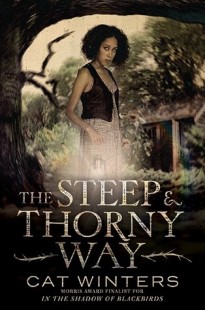 The Steep and Thorny Way by
The Steep and Thorny Way by 



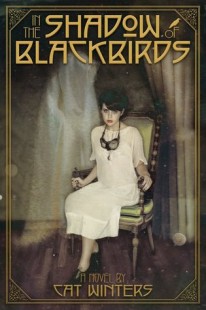 In the Shadow of Blackbirds by
In the Shadow of Blackbirds by 








